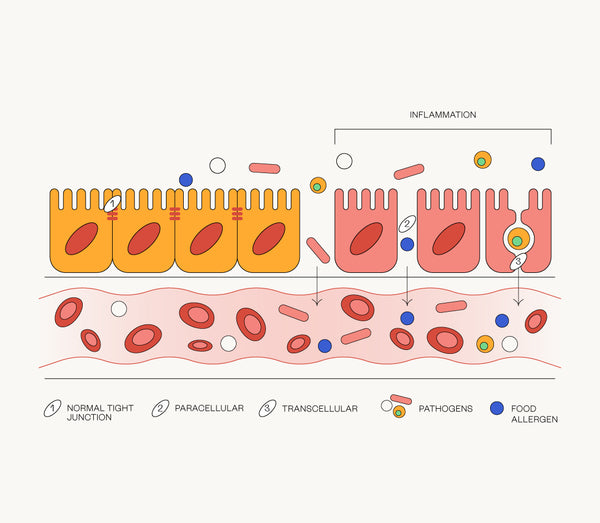How can your gut help to save the planet?
If you are a planet-conscious person (and if you’re reading this, we are pretty sure you are!), you may often find yourself thinking in what ways you can have a positive impact and help the Earth thrive. In this post, we’d like you to take into consideration a path that may be…somewhat surprising to you. We are talking about micro-bacteria. Yes, you read that right. Now your mind may be jumping between chemistry labs and dirt, and neither though may seem particularly appealing or related with you. Just read on.
Micro-bacteria, the planet, and you
You and planet Earth have many things in common. One of them is that both yours and the planet’s health are regulated by, and dependent on, large and varied communities of micro-bacteria. Micro-bacteria are part of the microbiome, a collective term referring to the population of micro-organisms living in the human body, in animals, and in the environment. There is increasing scientific evidence demonstrating that microbiomes are vital in our lives, and that the damage or loss of them has detrimental consequences for our health and the environment.
The microbes present everywhere in the natural world perform essential functions, such as breaking down organic waste or nourishing the plants and marine life that are part of our food chain and that clean the air we breathe. Similarly, the micro bacteria living in our body are precious allies supporting our digestion, hormone regulation, mental health, and immune system.
Overuse and misuse of antibiotics pose a threat to both our health and the Earth’s natural balance, depleting and threatening the microbiome’s ecosystems inside our bodies and out. So taking good care of our own innate micro-bacterial flora could be the next step towards supporting environmental sustainability.
Exampe quote || rganic waste or nourishing the plants and marine life that are part of our food chain and that clean the air we breathe. Similarly, the micro bacteria living in our body are precious allies supporting our digestion, hormone regulation, mental health, and immune syst
What can you do and what difference does it make?
Since the digestive system regulates various key body functions, keeping your gut in good shape could help you stay healthy and reduce your need to use antibiotics. Not only it can take up to 6 months for your body to recover from the damage done to your gut by antibiotics, but these substances may also be released into the environment by the digestive system (ya’know 💩) with negative effects on the environment. On the contrary, natural healthy waste can contribute to reducing the circulation of these bacteria-killing ingredients, nourishing our land and marine ecosystem in the process –because in nature, nothing really ever goes to waste, right?
Here are few ways to look after your gut flora and make a small daily contribution towards a more sustainable future and thriving ecosystems.
- Integrating gut-friendly activities in your self-care routine [link] can effectively reduce your stress levels and keep you and your flora thriving.
- Whenever you can, choose to buy products that are produced organically. Nourishing your body with food that has not been grown using toxic antibiotic pesticides is not only good for your body, but can help support agricultural and farming systems that strive to reduce their negative impact on the planet.
- A good choice of probiotic supplements can beneficially affect your innate microbiome. **At Innate Co. we only select research-backed, most beneficial bacterial strains that are free of nasties and additives. Even the capsules are all-natural and plant-derived. And, to further protect our Earth, we ship them in planet-friendly packaging –plastic-free, paper-based, compostable, recyclable – and with a refill system included to curb unnecessaryry waste!
Our health and that of our Earth are interconnected, perhaps even more closely and personally than what may have ever considered. We hope that you will keep on doing everything you can to make a positive impact on our planet, especially if these actions include looking after your own health. Be proud of the difference you make and always go with your gut!
Sources:
https://www.europarl.europa.eu/stoa/en/events/details/health-and-economic-benefits-of-microbio/20210409WKS03441
http://simbaproject.eu/the-microbiome-and-the-sustainable-development-goals-sdgs/
https://www.researchgate.net/publication/320379724_Health_and_environmental_applications_of_gut_microbiome_A_review
https://blogs.scientificamerican.com/observations/how-microbiomes-could-save-the-planet/


